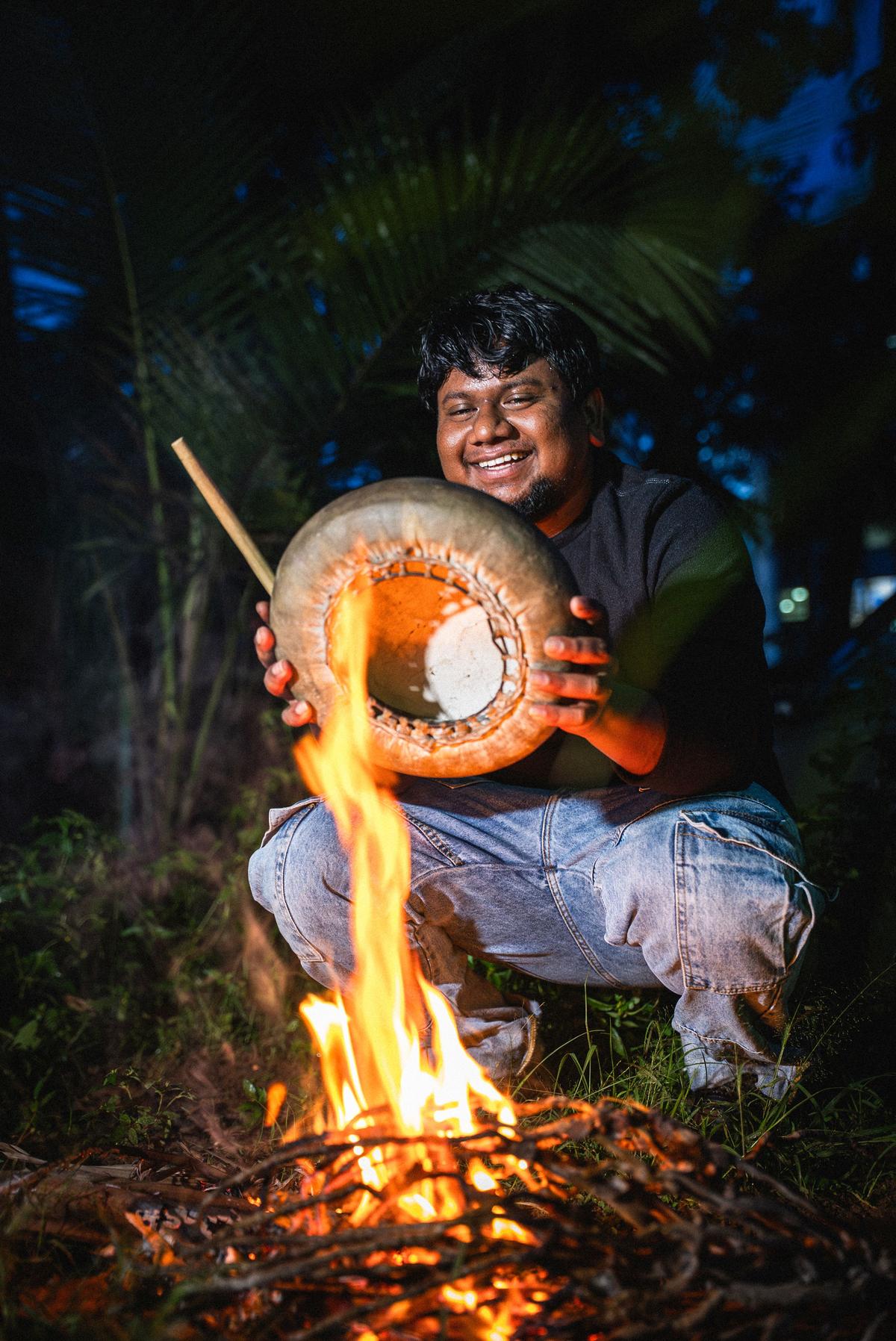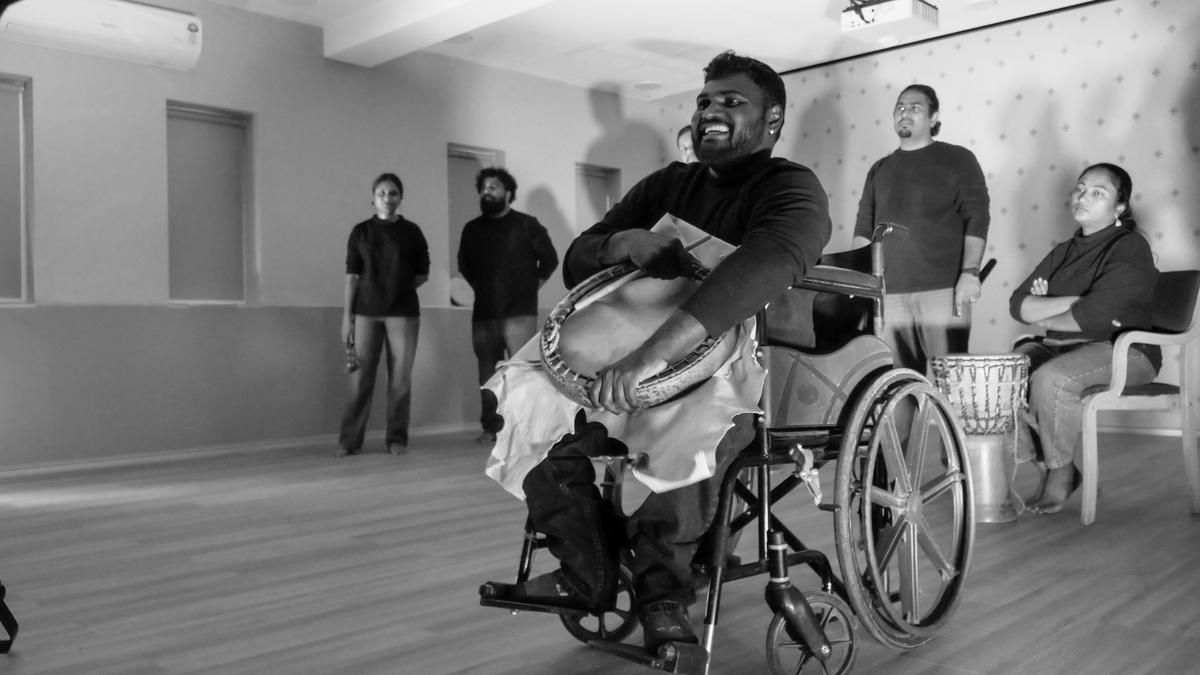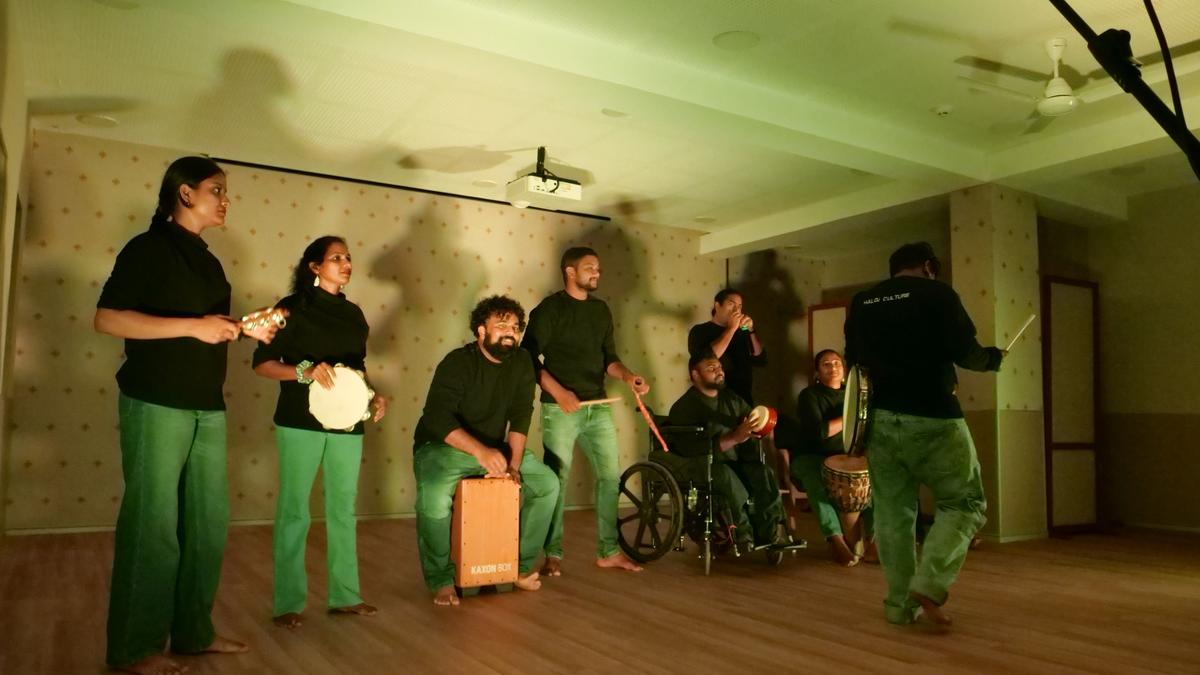Halgi Culture Band’s performance at Indian Heritage Academy
| Photo Credit: Special Arrangement
Protest and celebration, and pain and power intermingled in Halgi Culture Band’s ‘Thousand River Blues,’ performed recently at Bengaluru’s Indian Heritage Academy. The Band questioned systemic oppression without disclaiming the fullness of their voices or lives. The sharing was intense and moving, and it was a dialogue on the impact of generational segregation and exclusion targeting Dalits in Indian society.

Halgi has for long been associated with slave labour, says Bharath
| Photo Credit:
Special Arrangement
Conversation and movement were intrinsic to the performance. The soundscape stood on an array of percussion and vocals that animated stories and community voices against caste-based violence and discrimination. Opening with ‘Freedom Day’, a significant Civil Rights Movement era song from the jazz album ‘We Insist!’ by American drummer and composer Max Roach, the band established early on that their repertoire would speak of the deep-rooted nature of oppression. They infused the jazz number with a local flavour, setting another precedent on making every composition their own.
Ph. D scholar Rohith Vemula’s last letter, before he too his life on the University of Hyderabad campus became a thread for the performance that strung together the works of activists, writers and poets such as K.B. Siddhaiah, Siddalingaiah, Kotiganahalli Ramaiah, Joopaka Subhadra, Dayanand Author and Rajappa Dalavai. Compositions such as ‘Block block’ by Shwetha Rani H.K., who recently won ‘The Shankar Nag Theatre Award’, and ‘Kattalina Gallebani’ by Bharath Dingri, founder of the Halgi Culture Band — brought home powerful messages on inclusion, while highlighting mistreatment of Dalit communities, artisans and workers.

Their music is also about Dalit aesthetics, celebrations and more.
| Photo Credit:
Special Arrangement
“The tamate or halgi has for long been associated with slave labour,” says Bharath Dingri. “It is a language of resistance, identity of a community that, for ages, was not allowed to speak up, nor allowed access to education or opportunities. The tamate stood by them, and thus became a symbol of the community’s journey in finding its voice. In north Karnataka, the halgi is also called thappadi or tappu, while in south Karnataka, it is called tamate,” Bharath shares.
Speaking of the history the instrument carries, Bharath says, “The halgi is deeply rooted in the Madhiga Dalit community of Karnataka and carries a legacy of both rhythm and resilience. Halgi Culture has reclaimed the instrument through workshops and performances, creating a space where music challenges oppression and redefines identity.”
The group also narrated stories about the making of the halgi, sometimes as rap and sometimes as haunting tunes. Bharath points out that, “In the context of Dalit culture and literature, we don’t have just stories of pain but also of celebration. We have a huge knowledge base. We need platforms to express that too.”
Published – November 11, 2025 03:10 pm IST

